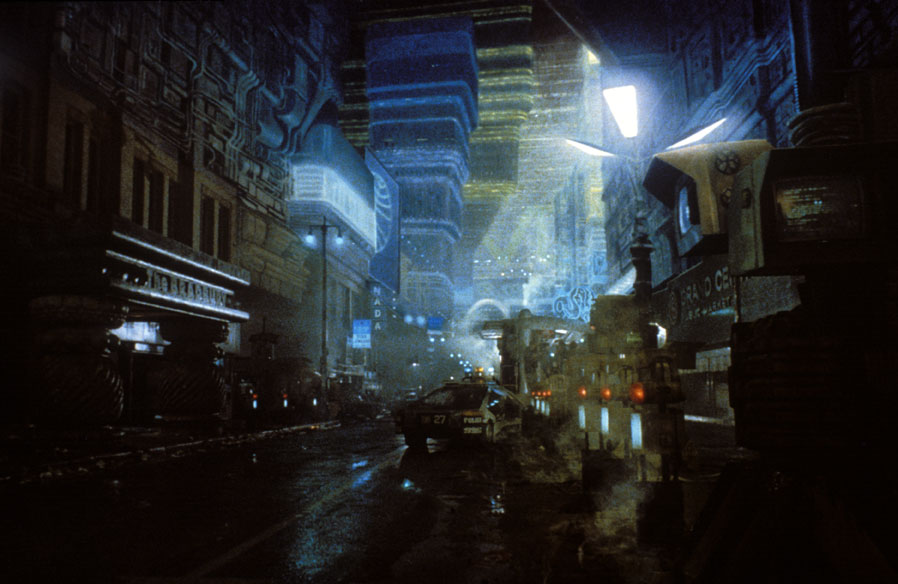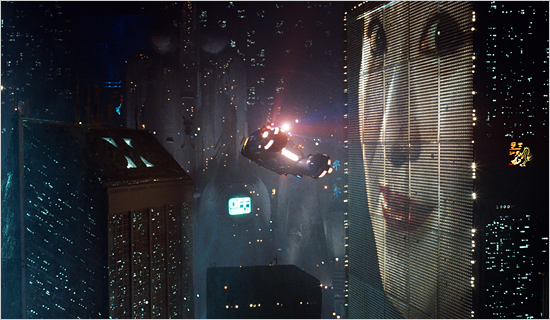 hunted by Blade Runners and there are only five that arrive, one of which is killed before Deckard is given the cases. The replicants come to Earth with the intension to extended their lives, due to the automatic "fail-safe" device that ends their lives after four years. The remaining four replicants are Leon Kowalski, Pris, Roy Batty, and Zhora. The androids themselves are also different in the book and the movie. Even though Pris is a very similar character in both, she has a few different qualities. For example, in the book, Pris is identical to Rachael and lives in the building where Isodore lives. In the movie, Pris looks very different from Rachael and hides outside of Sebastians building until he offers to let her come up to his apartment. Also, in the film Roy doesn't have a wife but appears the have romantic feelings towards Pris whereas he has a wife, Irmgard, in the book.
hunted by Blade Runners and there are only five that arrive, one of which is killed before Deckard is given the cases. The replicants come to Earth with the intension to extended their lives, due to the automatic "fail-safe" device that ends their lives after four years. The remaining four replicants are Leon Kowalski, Pris, Roy Batty, and Zhora. The androids themselves are also different in the book and the movie. Even though Pris is a very similar character in both, she has a few different qualities. For example, in the book, Pris is identical to Rachael and lives in the building where Isodore lives. In the movie, Pris looks very different from Rachael and hides outside of Sebastians building until he offers to let her come up to his apartment. Also, in the film Roy doesn't have a wife but appears the have romantic feelings towards Pris whereas he has a wife, Irmgard, in the book. Replicants have real emotions and can have real relationships with humans, unlike the androids in the book. This is seen most clearly in Deckard's relationship with Rachael. "In the Novel, the attraction between them results in Deckard committing adultery, while Rachael turns out to be a conniving android wholly devoid of empathy or real emotion and poised for vitriol and revenge. In the Film, their relationship is sweet and Rachael has no ill intensions - only precious vulnerabilities," (Carreon 2). It is clear in the novel that Rachael only pretends to have feelings for Deckard, as Dick portrays androids of being incapable of real emotions. Not only does she sleep with him only to prevent him from killing future androids, she also kills Deckard's goat, his most prized possession. However, in the film, Rachael and Deckard have an actual relationship and she is seen as having true feelings for him, something that the Dick's androids were not able to possess.
Replicants have real emotions and can have real relationships with humans, unlike the androids in the book. This is seen most clearly in Deckard's relationship with Rachael. "In the Novel, the attraction between them results in Deckard committing adultery, while Rachael turns out to be a conniving android wholly devoid of empathy or real emotion and poised for vitriol and revenge. In the Film, their relationship is sweet and Rachael has no ill intensions - only precious vulnerabilities," (Carreon 2). It is clear in the novel that Rachael only pretends to have feelings for Deckard, as Dick portrays androids of being incapable of real emotions. Not only does she sleep with him only to prevent him from killing future androids, she also kills Deckard's goat, his most prized possession. However, in the film, Rachael and Deckard have an actual relationship and she is seen as having true feelings for him, something that the Dick's androids were not able to possess.